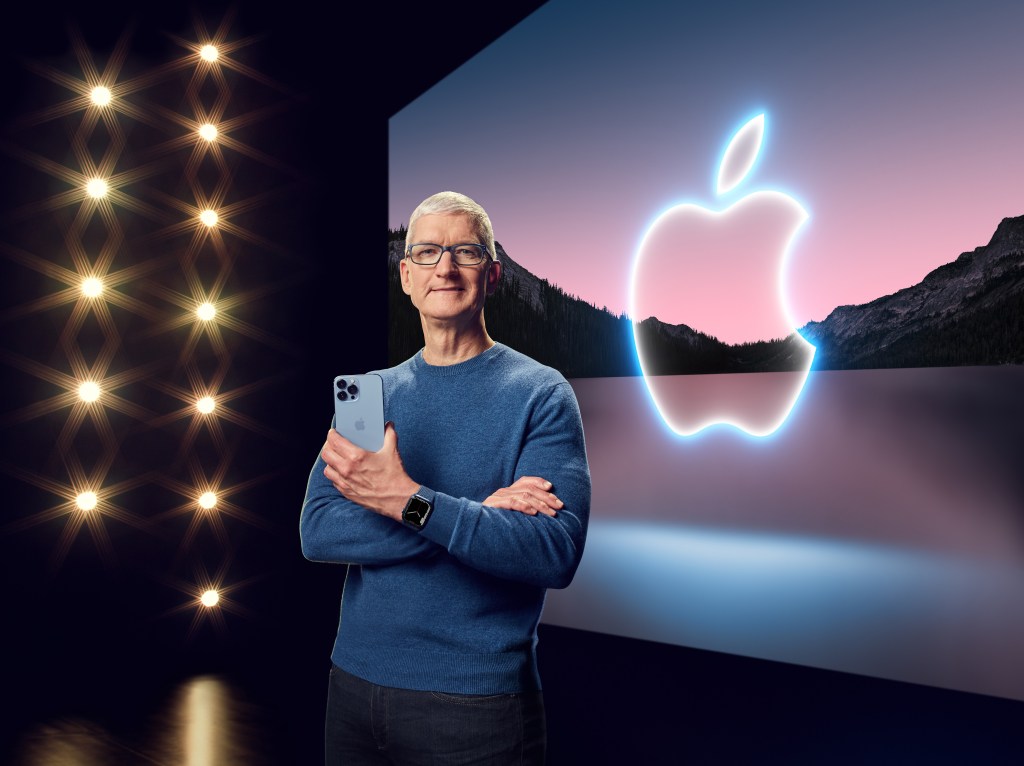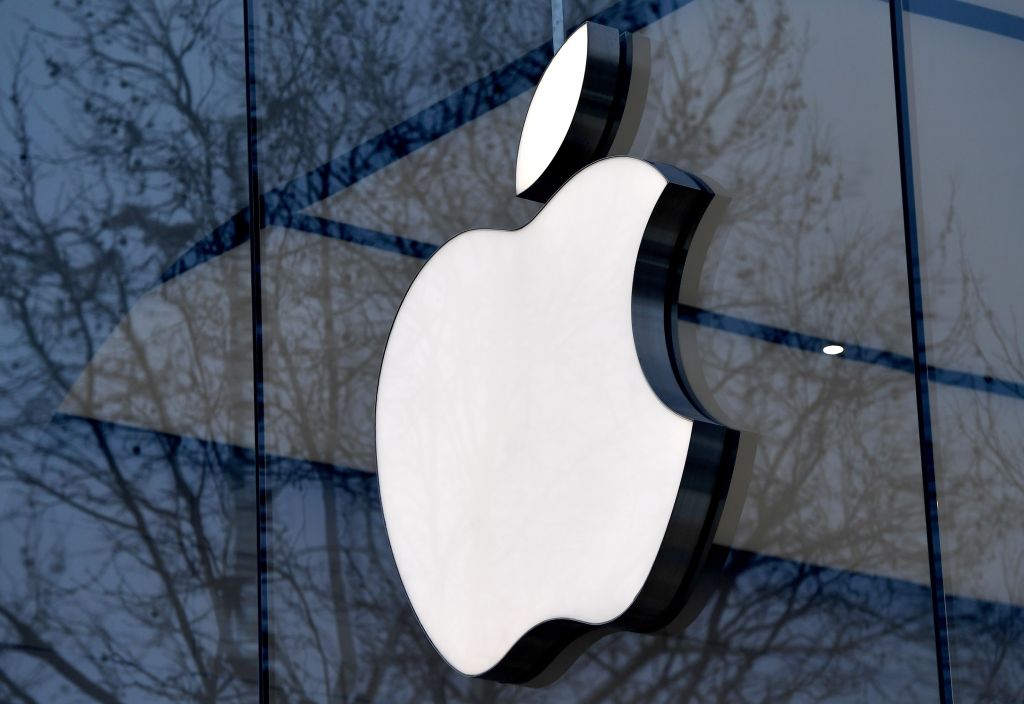 Image Credits: Apple
Image Credits: Apple
Apple is coming out swinging against the Department of Justice’s (DOJ) antitrust case, just announced Thursday, which accuses the iPhone maker of being a monopolist with its thumb on a mobile chokepoint of its own making.
Apple is dubbing the litigation misguided and warning the DOJ risks trashing all the things its customers value about its integrated mobile ecosystem.
The lawsuit threatens to undo the features that make its smartphones different from the rest of the market, as Apple tells it — with the risk, should the suit prevail, of the iPhone ending up looking and feeling just like an Android phone. So it’s even managed to get a trolling swipe at Google into its defense.
In a statement provided to TechCrunch, Apple said:
This lawsuit threatens who we are and the principles that set Apple products apart in fiercely competitive markets. If successful, it would hinder our ability to create the kind of technology people expect from Apple—where hardware, software, and services intersect. It would also set a dangerous precedent, empowering government to take a heavy hand in designing people’s technology. We believe this lawsuit is wrong on the facts and the law, and we will vigorously defend against it.
The suit, which is being filed by the DOJ and 16 state attorneys general, accuses the iPhone maker of anti-competitive exclusion across two markets the litigation will seek to establish — so-called “performance smartphones” and “US smartphones” — which are narrower market definitions than the smartphone market as a whole. The suit claims Apple holds a more than 70% share of “performance smartphones” and over 65% of the US smartphone market, respectively.
In a briefing with journalists following the DOJ’s announcement this morning, Apple dismissed these market definitions as gerrymandering on the part of government lawyers trying to make a monopoly case stick where it argues there is none.
It says the circa 20% global smartphone market share the iPhone holds is the only market definition that makes sense.
In wider remarks Apple hit out at the DOJ’s case as legally dubious and/or misguided — suggesting it’s an attempt to replicate the antitrust case the government successfully brought against Microsoft’s Windows OS back in the 1990s by desperately trying squeeze Apple into the same mould.
Apple representatives reject any comparison here, pointing out that Microsoft had a 95% market share, for example. They also argue it ignores how Apple has created an entirely new marketplace for developers and consumers.
On the call, Apple representatives sought to back up this claim by dropping in a few growth metrics — saying for example that, over the past ten years, the number of paid developers on the App Store has increased by 374% (from 1.1 million to 5.2 million).
Citing stats from 2020 to 2022, they also sought to highlight growth in commerce generated by developers in its App Store. Globally, they said this increased by 64%, from 685 billion to 1.1 trillion. Although it’s worth noting the time period Apple selected to highlight here spans the pandemic, when digital commerce skyrocketed for all sorts of services as a consequence of lockdowns. And often came back down to Earth with a bump after pandemic restrictions lifted.
While Apple is seeking to paint the government as misguided, it is directly accusing a handful of vested commercial interests of being the driving force behind the lawsuit. It points to the Coalition for App Fairness, a lobby organization which counts the likes of Epic Games, Spotify, Match Group and Basecamp among its members — accusing the app developers of trying to use a dubious competition complaint to get a free ride on its platform, and trying to force it to give them unfettered access to consumers.
The Coalition responded to today’s suit with an aggressive statement of its own — welcoming the DOJ’s “strong stand against Apple’s stranglehold over the mobile app ecosystem”, as they put it.
Apple’s rebuttal is that App Store rules are designed to protect consumer interests — by ensuring a high quality of service and standard of privacy and security. It also argues there is no legal requirement on Apple to design its technologies in ways that might be better for competitors.
The wider argument Apple is making is the suit targets an experience consumers value, which drives loyalty and leads them to prefer iPhones over Android smartphones in the first place — something it suggests the DOJ’s case entirely fails to factor in. And by seeking to undo core differentiating (and valued) features of its mobile ecosystem a successful outcome for the government would result in reduced consumer choice.
Apple representatives even dangled the idea of judges, rather than Apple engineers, designing iOS user experiences.
But they are also aggressively briefing that the DOJ case will fail. Company reps referenced snippets from a number of earlier judgements, such as the Epic Games v Apple case; and the AliveCor litigation, to suggest US courts have backed the company’s right to design and operate its platform as it does. And while Apple has not always had its way in these legal skirmishes, it’s true that in a 2021 ruling judges did not find it to be a monopolist.
In today’s briefing Apple also claimed the DOJ’s case has changed tack multiple times (it suggests at least six) over the four years it’s been in formulation.
Apple representatives did not provide any specific detail on earlier DOJ theories — but claimed the government did not progress them because of a lack of evidence. So Apple is seeking to frame the suit as a hodgepodge of bits and bobs that doesn’t really hang together.
During the call, an Apple representative offered some rebuttals to specific charges, too — saying, for example, that Apple does now allow cross-platform “super apps.” They also suggested it intends to implement RCS for messaging. But a company rep suggested it wants to integrate the technology in a way that does not lower the level of privacy and security for iOS users, hence taking its time.
In its defense, Apple is also claiming it’s continued to increase access to iOS over the years — with a company rep saying the iPhone is open to millions of third party apps and hundreds of third party accessories.
For more on Apple’s antitrust lawsuit, check here:
Apple sued by DOJ over iPhone monopoly claimsDOJ claims green bubbles are an issue in Apple iPhone antitrust lawsuitWhy Apple’s antitrust lawsuit could be a silver lining for Epic GamesApple’s iPhone is not a monopoly like Windows was a monopoly Epic, Spotify, Deezer, Match Group and others applaud DOJ’s Apple lawsuitDOJ calls out Apple for breaking iMessage-on-Android solution, BeeperHere’s what the DOJ suit could mean for Apple WatchDOJ says Apple’s ‘complete control’ over tap-to-pay transactions stops innovation







